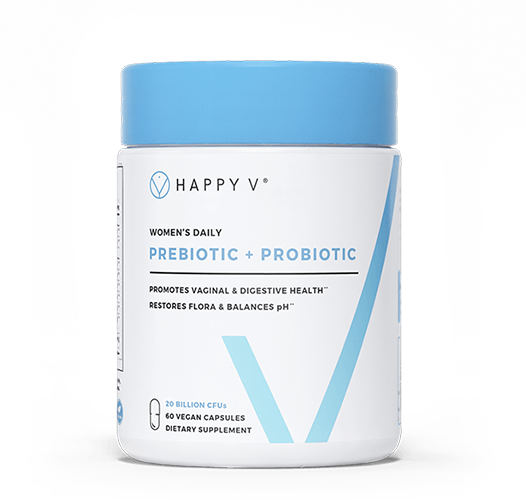- The color of your menstrual blood is an important indicator of your reproductive health.
- Changes in your cycle, including the consistency of period blood, changes to your menstrual flow, and color variations, can indicate implantation bleeding, a bacterial infection, fertility concerns, or other medical conditions.
- Typically, you can keep your menstrual cycle regular by adopting some lifestyle changes.
Talking about your period blood can feel uncomfortable—after all, until recently, most people pretended menstrual bleeding doesn’t exist! Thankfully, in today’s day and age, menstrual bleeding is understood to be a medical condition worth talking about.
Menstrual bleeding is not the same for everyone, so it’s important to know what healthy period blood looks like for you. Changes in your cycle, including the consistency of period blood, changes to your menstrual flow, and color variations, can indicate implantation bleeding—the first sign of pregnancy!—a bacterial infection, fertility concerns, or other medical conditions. If you know what healthy flow looks like for you, you’ll know to reach out to your healthcare provider when you experience unusual discharge.
What’s the Meaning of Different Colors of Period Blood?
The color of your menstrual blood is an important indicator of your reproductive health. Changes in the color of your vaginal discharge may be a sign of miscarriage or pregnancy, or they could indicate an abnormal growth or infection. Although there is no one healthy colored blood, each person has their own typical healthy period blood color, usually bright red to cranberry red.
Minor changes in the color of menstrual bleeding from month to month, such as from cranberry red to brownish blood, are normal; however, abnormal changes, like a sudden orange blood appearing in between two cycles, should be reported to a healthcare provider.
The different colors of vaginal discharge have different meanings for your reproductive and genital health. There are many different types of discharge—keep reading to find out what the color of your period blood might mean for you!
Dark Red or Brown-Colored Blood
Period blood typically appears dark red or brown in color at the start or end of the monthly cycle. Darker period blood color usually indicates that the blood is old.
Sometimes however, women experience dark brownish discharge in between their cycles, when they use hormonal birth control pills, or after menopause due to hormonal changes, since changes in hormone levels change the color of your period blood. Menopause probiotics can help rebalance your hormones in certain situations. Dark red or brown period blood may also be a sign of a miscarriage or post-pregnancy bleeding.
Bright Red Blood
Mid-cycle, period blood is usually bright red. Brighter blood is new, which means it recently shed from the uterine lining and did not have time to deposit and darken.
If you are experiencing unusual bright red bloody discharge, it could be a sign of a more serious condition. Bright red vaginal bleeding can indicate certain abnormalities including spotting during pregnancy, polyps, or infections like gonorrhea and chlamydia.
Orange Period Blood
If your period blood mixes with cervical fluids, then it may appear orange in color. However, orange period blood can also be a sign of an infection like chlamydia or gonorrhea. Infection-related changes in your period blood may be associated with bad-smelling discharge as well.
Pink Period Blood
A mixture of blood with fertile cervical fluid may cause your vaginal bleeding to appear light red or pink in color. Light pink discharge may also indicate your estrogen levels are lower than normal. Low estrogen levels are common in people who exercise excessively, like athletes. While exercise is generally healthy, excessive exercise can be dangerous if it causes irregular bleeding or your periods to stop altogether.
Gray or Off-White Discharge
Having gray blood is abnormal. Gray discharge may indicate a possible infection like chlamydia or gonorrhea, or, for pregnant individuals, it may indicate a miscarriage. If you are concerned about unusual discharge, it’s a good idea to consult a healthcare professional and get tested for pregnancy, infection, or other health conditions.
How To Normalize Irregular Periods
Many people struggle with irregular periods, but it’s very rare for periods to require medical attention. Typically, you can keep your menstrual cycle regular by adopting some lifestyle changes. If you’re tired of heavy periods, irregular bleeding, or other abnormalities in your period cycle, try these tips.
- Practice yoga. Yoga is very effective in dealing with menstrual abnormalities. (1) Just 30–40 minutes of yoga 5–6 days a week can help normalize hormonal levels, which may cause your periods to be irregular.
- Exercise regularly to maintain a healthy weight. Being over or underweight can greatly disrupt your menstrual cycle. Exercising regularly can help you maintain a healthy weight, which can keep your menstrual blood flowing regularly.
- Increase your intake of ginger. Anecdotal information suggests that ginger is very useful in maintaining a regular menstrual cycle. Furthermore, it also helps to reduce period pain and excessive blood loss during periods.
- Take your vitamins. Low levels of vitamin C are linked to irregular periods. (2) Taking a vitamin C supplement can help you get a steady flow during your period and maintain your reproductive health.
- Incorporate apple cider vinegar in your diet. Consuming 15 milliliters of apple cider vinegar daily can help cure polycystic ovary syndrome and its associated symptoms, ultimately normalizing the menstrual cycle. (3)
- Take healing baths. Relaxing in a warm water bath with Epsom salts and essential oils three times a week can help relieve stress and reduce cortisol levels, which may help normalize menstrual abnormalities and reduce the severity of menstruation.
Balance Your Hormones Naturally With Support From Happy V
You deserve to feel your best, whether you’re dealing with irregular periods, bacterial imbalance, or changing hormones. Our probiotic for vaginal health supports balanced pH and good bacteria where you need it.
For natural support in every life stage, try Happy V.
- https://www.ncbi.nlm.nih.gov/pubmed/23647406
- https://www.ncbi.nlm.nih.gov/pubmed/25879830
- https://www.ncbi.nlm.nih.gov/pubmed/23666047
Check out Our Prebiotic + Probiotic to cover all your women wellness needs!
- A-
- A+
Check out Our Prebiotic + Probiotic to cover all your women wellness needs!






